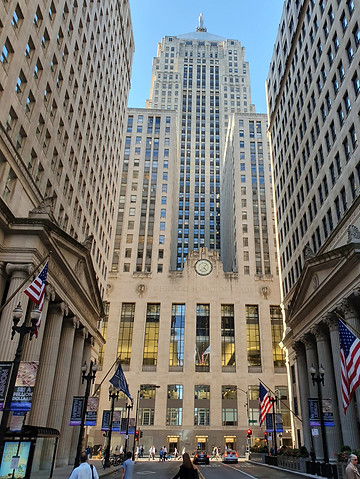Recommended
Reading
Here is a list of titles that I find interesting and would like to shed some light on. I will split them into fiction and non-fiction and will add to the list once I come across more titles.



1
Non-Fiction
Sinclair, Euan (2010). Option Trading. Wiley.
In the space of options, this is by far my favorite. Sinclair wrote Volatility Trading too, which I would also recommend reading. There is another title from him “Positional Option Trading”, yet this one is a bit niche and describes a few specific strategies. In Option Trading, Sinclair explains the basics of options and market making techniques in a very clear fashion. It has the right number of formulas (not too “mathy”, but also not too wordy). He even highlights the Black-Scholes formula in a comprehensive way. I’ve read the book/chapters at least ten times.
Natenberg, Sheldon (2014).
Option Volatility & Pricing, 2nd Ed. McGraw Hill.
Oftentimes considered the handbook of volatility trading and a very common tool in certain trading firms. I can’t ignore the power of his success. For me personally it is a bit too wordy (570 pages) and as a result, trading intuition doesn’t really stick after reading this work. I can see how it helps people with absolutely no numerical background, but I prefer other titles.
Hull, John (2021).
Options, Futures and other Derivatives, 11th Ed. Pearson.
I consider this work more as an encyclopedia or reference work. This isn’t a title you will read front to back, as it is 880 pages and describes a wide collection of different asset classes in a mathematical way. So, in case you forgot how to calculate the price of a zero-coupon bond, it is a nice to have book, as you’ll find it easy to look up these things. One other pleasant element is the fact that all chapters include worked-out examples and exercises. This is a big plus for the self-taught student and also the reason that derivatives courses at universities oftentimes work with Hull.
Baxter, Martin & Rennie, Andrew (2010).
Financial Calculus, 18th Ed. Cambridge
This work requires a proper mathematical background. What I like about it is the fact that it explains stochastic processes (discrete and continuous) related to finance, derivatives and arbitrage-free pricing in a very concise and intuitive way – provided you have a bit of a stats background here.
2
Fiction
Lefèvre, Edwin (2006, orig. 1923).
Reminiscences of a Stock Operator. Wiley
A great trading book that given its age is still extremely relevant to create a trading mindset. Lots of lessons and one-liners that attribute to the trading skill that can’t be taught in uni. Favorite quote (since the book is so old and still it holds): “Observation, experience, memory and mathematics – these are what the successful trader must depend on.”
Mackay, Charles (1995, orig. 1841).
Extraordinary Popular Delusions and the Madness of Crowds. Wordsworth.
A thorough and fascinating presentation of a few tragic bubbles in global history. The work is crucial to anyone attempting a trading career as it shows how tempting certain “opportunities” are, while in hindsight these can be seen as obvious failures. Plenty of parallels with modern trading.